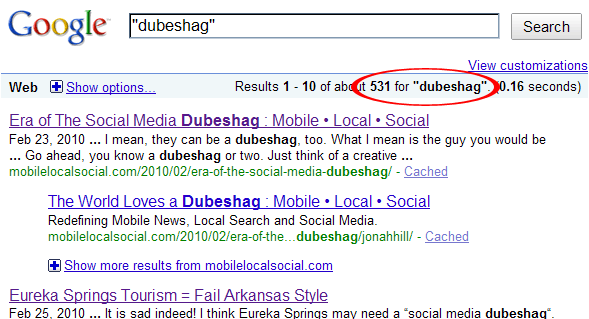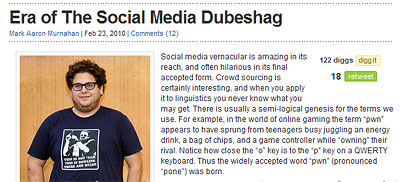
You want more website traffic. Don’t try to deny it. I want more website traffic, too. Website traffic makes me happy. It makes me feel vindicated for all my hard work. It makes me money … (insert sound byte of screeching tires here). Incorrect! More website traffic actually does not pay me a penny. It actually comes with a cost. Maybe this is why I am telling you the truth. I may just lie to you if I earned a dollar every time you click another page, but I do not. Go ahead and look around to see that I do not have a bunch of cost-per-exposure advertisements or cost-per-action links to “buy now” or “register here” on my blog. I have a couple of my own books listed to the left, but I am not force-feeding that to you. They are not my big money-maker. So, you may ask, “what is the catch, and why do you want to share this with me?” There must be something dirty in this plan, right? No, in fact, I actually do not want to sell you anything at all. I will explain, but first, I want you to understand some facts about producing more website content. I will explain why more website content is important, and also why it is not important.
Benefits Producing More Website Content
If you produce more written content on your website, there will be more things for Google and other search engines to add to their databases. This means that as long as you do everything else just right, you will have a higher chance of being listed when somebody performs a search. Do not underestimate the importance of this fact. Consider why Wikipedia is found so often when you search for something. Wikipedia has a lot of useful website content … things you want to know.
I recently illustrated the huge differences in website traffic based on adding new website content as compared to the reach of social media. I suggest reading “Twitter is Useful but Blogging is Better” and also a piece titled “10 Really good Reasons to Blog“. Your website really is the epicenter of your business efforts online, so you should treat it that way. If you are in business and want more business, you should really be producing more website content … but here comes the hard part.
Producing More Website Content Does Not Matter
Website content is important. It is important enough that more website content, alone, is not what really matters. Your competitors are producing more website content, too. The race is on, and now it will require marketing talent to win. Doing it right is what matters. Giving people information they want and need, becoming a market authority, and being ready with a solution for the reader’s need matters more. Volume of website content will get people there, but having something truly spectacular for them is what makes them a customer.
There is a balance to be found between more website content and great website content. Some content will get traffic and public attention, but people will only look further if it grabs them and pulls them in. The people who visit my blog because they searched for “best hookers” (and they do) are not buying what I sell, but it is a pretty darn popular piece of blogging content. The people who happen upon that piece because I referenced it, like I did here, are why I wrote it. There is also a lot of value in reaching the audience just outside of your focus using “lateral keywords“. This means keywords in a lateral and sometimes unexpected market.
Producing Website Content Gets Easier
Producing website content gets easier with practice, and it can really create a snowball effect. Just consider this: I set out to write a book about Twitter in 2009. I was just out to write one book, but all of the sudden it got easier and I wrote two more within three months. I also blogged enough to wear my fingers smooth.
You do not need a degree in literature to produce successful website content. I can prove this statement. The website content that I have produced over the last decade is viewed by hundreds of thousands of people per month. It has also earned me millions of dollars. I left school at 15 years of age and I am the CEO of a wholesale Internet company. I didn’t have the time or education to write more website content either. I am glad that I did, and it provided inspiration for the book “Living in the Storm“.
You can do this, and it really does make a difference. When you cannot, there are also a lot of website content producers available to hire out the work or to augment your efforts. There is also a search engine optimizer on every corner. These fields grow with each round of layoffs at companies that didn’t produce more website content in time to beat the competition.
When Twitter, Facebook, LinkedIn, and all the other tools you have tried just aren’t working like you hoped, it is likely that you simply didn’t produce enough quality content that people were looking for. Think about it like planting a tree. If you want shade, the best time to plant it is ten years ago. You cannot go back and plant it earlier, so the next best time is now.
Why I Do Not Want to Sell You Anything
I wrote earlier that I do not want to sell you anything at all. That deserves an explanation, because I really do not mean to seem rude or impersonal. The truth is that I am actually looking at the guy over your shoulder. I want your competitor. I want the one who is out to crush your business because they understand the importance of not only producing more website content, but also producing the content that will smash the competition. That is how I earn a living for my family. So, if you call me on the phone or message me, be sure that you tell me you are out to cause a marketing massacre for that other company who read this blog article (yes, they are reading it, too).




